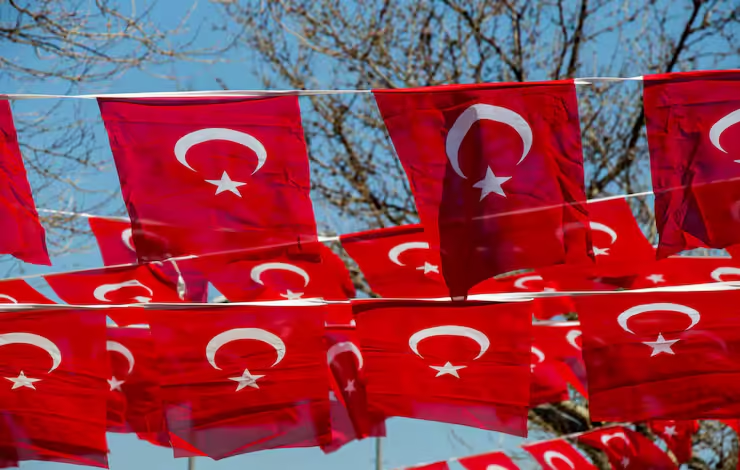Unveiling the Truth about “Utanmaz Türklere”

In the rich tapestry of Turkish culture, certain terms carry profound weight and historical significance. One such term is “utanmaz türklere.” While often controversial and loaded with implications, understanding this phrase’s origins, evolution, and modern-day relevance can offer valuable insights into Turkish society.
Introduction to the Term
“Utanmaz türklere” translates to “shameless Turks” in English. It is a term imbued with negative connotations, often used to describe individuals who act without regard to societal norms and values. This blog post aims to unpack this complex term, exploring its historical roots, cultural impact, and contemporary relevance.
Defining “Utanmaz Türklere”
The term “utanmaz türklere” is not merely a derogatory label; it is a reflection of societal attitudes and values. In Turkish culture, where honor and reputation are highly valued, being called “utanmaz” (shameless) can be deeply damaging. It implies a disregard for social etiquette and a lack of moral integrity.
The Significance in Turkish Society
Understanding “utanmaz türklere” within the context of Turkish society requires an appreciation of the cultural emphasis on honor and respect. This term serves as a social tool to enforce conformity and uphold traditional values. However, it also raises questions about the rigid enforcement of these norms and the implications for individual freedom and identity.
Historical Background
To fully grasp the term’s significance, we must explore its historical roots and how its usage has evolved over time.
Origins of the Term
The origins of “utanmaz türklere” can be traced back to periods in Turkish history where strict social hierarchies and moral codes were prevalent. During the Ottoman Empire, for instance, social conduct was closely monitored, and deviations from accepted norms were harshly criticized.
Evolution Through Different Periods
Over centuries, the term has evolved, reflecting changes in societal values and political landscapes. In the early Republican era, for example, the push for modernization and Westernization brought new social norms, influencing how terms like “utanmaz türklere” were understood and applied.
Usage in Literature and Media
Literature and media have played significant roles in shaping public perception of “utanmaz türklere.” From classical Ottoman poetry to contemporary Turkish cinema, the portrayal of “shamelessness” has varied, offering insights into societal attitudes across different eras.
Cultural Analysis
A deep dive into the cultural implications of being labeled as “utanmaz türklere” reveals its intersection with gender, social class, and regional differences.
Gender Dynamics
The term “utanmaz türklere” often carries different connotations for men and women. For women, being labeled “shameless” can be particularly stigmatizing, given the traditional expectations of modesty and propriety. For men, it might imply a disregard for honor and loyalty, crucial values in Turkish male identity.
Social Class Implications
Social class plays a crucial role in how “utanmaz türklere” is perceived and applied. In upper-class circles, the term might be used to critique those who flout societal expectations of decorum and sophistication. In contrast, in working-class communities, it could signify a rejection of communal values and solidarity.
Regional Differences
Regional variations in Turkey also influence the term’s usage and impact. In more conservative areas, being labeled “utanmaz” can result in severe social ostracism. In contrast, urban centers might see a more nuanced application, reflecting the diverse and evolving social landscape.
Case Studies
Real-life examples and anecdotes can provide a more nuanced understanding of what constitutes “utanmaz türklere” and how individuals navigate this identity.
Example 1: The Story of Ayşe
Ayşe, a young woman from a conservative village, faced severe backlash after deciding to move to Istanbul for higher education. Labelled “utanmaz” by her community, she struggled with the dual pressures of pursuing her dreams and maintaining her family’s honor.
Example 2: Mehmet’s Journey
Mehmet, a businessman in Ankara, was tagged as “utanmaz” after his public critique of traditional business practices. His story highlights the tension between modernity and tradition, and the challenges of navigating societal expectations while pushing for change.
Example 3: The Case of the Anonymous Blogger
An anonymous blogger who tackled taboo subjects in Turkish society faced a barrage of “utanmaz” accusations. Their experience underscores the power of words in shaping public opinion and the risks of challenging entrenched norms.
Contemporary Relevance
In today’s Turkey, the term “utanmaz türklere” holds new dimensions, shaped by changing societal values and media portrayals.
Societal Changes
Modern Turkish society is marked by rapid change, with increasing exposure to global cultures and ideas. This shift has influenced how terms like “utanmaz türklere” are understood and used, often reflecting generational divides.
Media Representation
Media plays a pivotal role in shaping contemporary perceptions of “utanmaz türklere.” Television shows, movies, and social media platforms often amplify these labels, influencing public opinion and reinforcing or challenging traditional norms.
Future Prospects
The future of the term “utanmaz türklere” will likely be shaped by ongoing societal debates about identity, morality, and freedom. As Turkey continues to evolve, so too will the meanings and implications of this complex term.
Conclusion
Understanding “utanmaz türklere” offers valuable insights into Turkish culture, societal values, and the tensions between tradition and modernity. It is a term that reflects deep-seated attitudes and serves as a lens through which to view ongoing cultural discourse in Turkey.
Exploring this term is not just about understanding a label but about appreciating the rich and complex fabric of Turkish society. As Turkey continues to evolve, so too will the meanings and implications of “utanmaz türklere.”
We invite you to share your thoughts and experiences with this term in the comments below. Let’s continue this important conversation about identity, culture, and the evolving landscape of societal values in Turkey.



